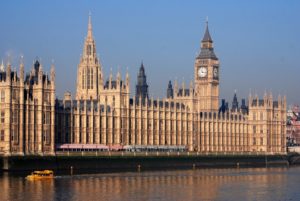![]()

The house of parliament near Westminster erupted as Khaleed Massod plowed a car full speed over a bridge, killing five people, and injuring fifty more.
A terrorist attack against the United Kingdom has brought the country to consider the near realities of terrorism.
London’s Khaleed Masood drove a car into a crowd in Westminster near the house of parliament, leaving five dead and fifty more injured.
A statement from London’s acting deputy commisionor, Mark Rowley, said that Masood’s motivations were currently under investigation, and it was presently unknown whether or not he was acting alone, “inspired by terrorist propoganda” or if he had support in his actions. Despite this, Rowley was confident that there was “no evidence of further threats.”
This news comes after statements made by Max Hill, Britain’s new independent reviewer of terrorism legislation, that the U.K. faces impending terrorist attacks from the Islamic State, on a scale comparable to that of the Irish Republican Army back in the ‘70s.
Hill warned the U.K. of an “indiscriminate attacks on innocent civilians” from Islamist extremists on a large scale, similar to the attacks brought by the IRA in the ‘70s announced in late February, as reported by the Telegraph.
According to Hill, the threat to the cities in the United Kingdom is imminent and is a risk that can no longer be ignored.
Hill expressed concern about the return of hundreds of British jihadists fighting for ISIS and ISIL in Syria, according to The Telegraph.
Hills pointed to social media as the main recruiter of young British jihadists. Hill said that the work of terrorists can be done remotely, across social media, making their victims very vulnerable.
“Often teenagers, have been radicalized or have had their mindset altered in part or in whole by what is accessible to them from their bedroom on a laptop computer,” Hill told The Telegraph.
Concerns began in 2005, when four Islamic terrorists detonated three separate bombs in the London Underground and a fourth planted in a double-decker bus in Tavistock Square.
Fifty-two people were killed and around 700 people were injured in the attacks. Another incident in 2013 saw an assailant attacking six individuals with a knife, killing one and injuring the rest. The police linked the incident to a possible terror attack.
Bill Stevenson, director of international programs at John Brown University and an Ireland native, has several theories on why the U.K. has been targeted by the Islamic State.
Stevenson said that the partnership with the European Union weakened the U.K.’s borders, loosening its grip on national security control and defensible borders.
Stevenson also said that there is less security at the United Kingdom borders, allowing possible jihadists to enter and exit the country more easily than in the United States.
This, in part, is one reason why the U.K.’s separation from the EU, known colloquially as “Brexit,” will allow the U.K. to maintain tighter control over national security and build stronger border controls.
Stevenson said he believes that the Islamic population in U.K. is increasing. British youth are known to have joined forces with the Islamic State.
Stevenson, after reading reports, concluded that the Islamic State wants to conquer London.
“London, perhaps, is symbolic of western civilization, and is an easier target. It’s more reachable, more achievable through the back door of Europe.” Stevenson said.
Scott Lloyd, adjunct professor of humanities and social sciences, said he believes that dealing with native terrorist groups better prepares the country for threats.
“The United Kingdom does not assume itself to be safe,” Lloyd said in reference to the attacks by the IRA. “If a bomb-thrower comes along, they know what to do.”
Although similar on the terrorist scale, Lloyd said he considers the Islamic State and the IRA incomparable in terms of terror tactics.
Lloyd said the Islamic State retains an abstract, far reaching ideology that rids the world of Western ideology.
“Radical Islam takes a view that the dominant political, economic philosophies of the day – that which the West represents – are a problem and they need to need to be combatted,” Lloyd said.
This ideal is in contrast with the specific driving force that propelled the IRA in their mission: to gain independence for Ireland.
“They had a specific goal in place in acting against England and English imperialism. They accomplished that goal in part, and there is a republic of Ireland now,” Lloyd said.




